 |
»Upgrade X.0: can communities save the world and do they want to?«
Stella Veciana, Ralf Hilgers
What role can intentional communities play in the transformation towards a sustainable world? What does the world expect from communities? How does the unvisible become perceptible? These are some of the core questions raised by the participants from fourteen communities during the meeting "Community X.0 - time2upgrade". The jointly designed process work resulted in unexpected spaces for transformation.
more (German)
|
|
|
|
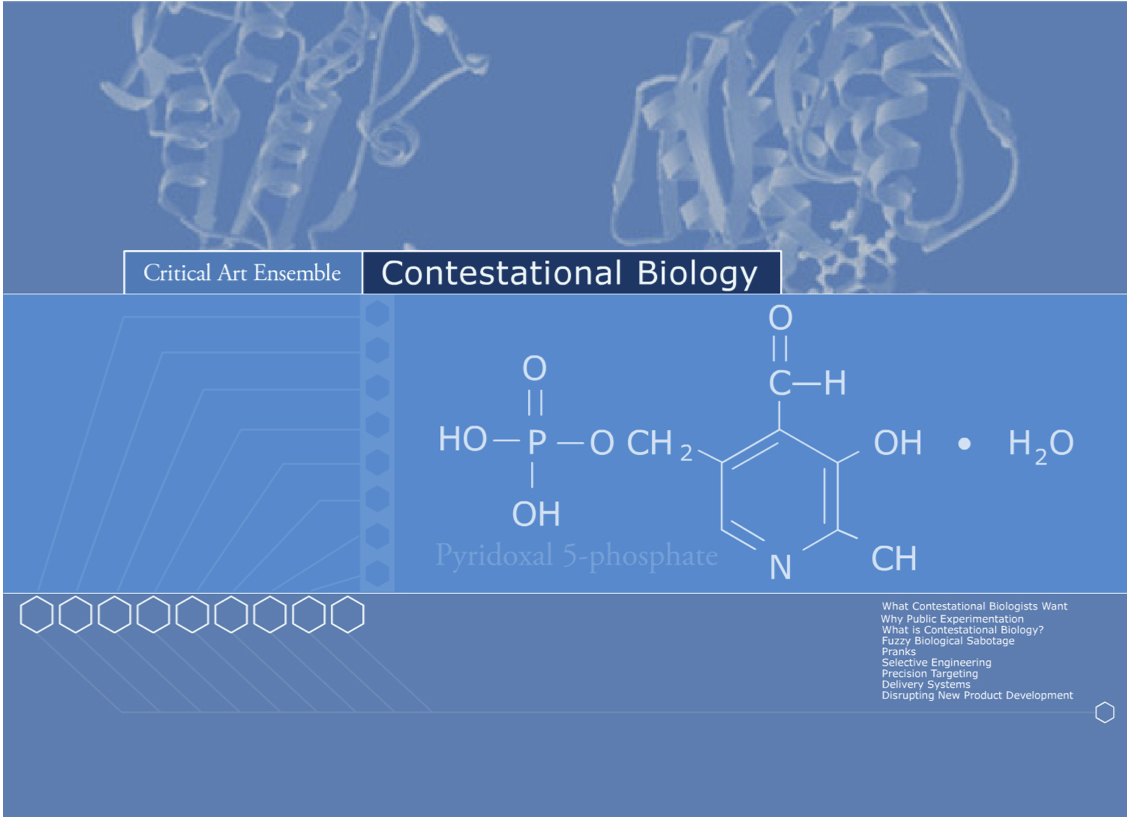
|
»An Aesthetics of Disorganization as Contestational Strategy«
Laura Benítez Valero.
In recent years, the transdisciplinary relationships between Art, Science and New Technologies have led to the generation of hybrid contexts that, not only have provided new conceptual framework for theory and art criticism, but have also led to paradigm shifts affecting other areas of knowledge. These transdisciplinary relationships can be taken as a starting point for the research and development of critical theoretical models of contemporary art and culture.
Thinking Bioart as a place for an aesthetic of disorganization intends to take the potential of artistic practices to disrupt the body, distorting codes, narratives and taxonomies. It involves the composition of a fragmented landscape, a collage that allows for new constructions out of the estrangement, new questions about body, life, art, ethics and politics... a space of resistance, a place for perpetual displacement.
more
|
|
|
|
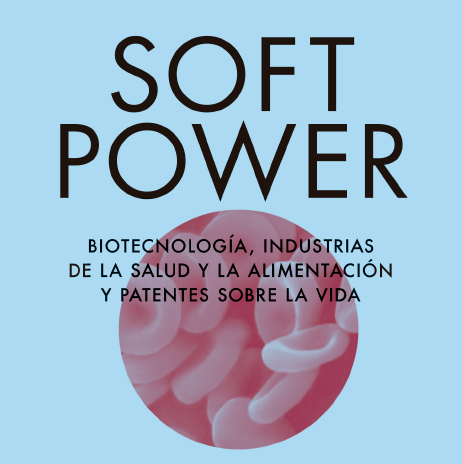
|
»Soft Power. Artistic and activist strategies against life-patents and for the democratization of science.«
Maria ptqk.
The project Soft Power (Vitoria, Bilbao, 2009-2011) has intended to investigate the intersection between biotechnology and artistic and cultural practices, as well as to provide a space for knowledge exchange and public debate on this topic. Special light was put into the extension of bio-patents, leading to a growing privatization of the world´s genetic resources, and particularly to the different strategies used by artists and activists to respond to them: open genetic and bio-data banks, manifestos, public licenses or political instruments like the commons or the “Common Heritage of Mankind”. In that context, the indigenous and bio-centric concepts of pachamama or sumak kawsay, introduce a shifting paradigm.
more
|
|
|
|
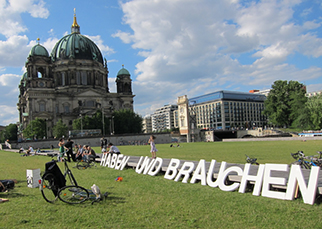
|
»Concept for a longer-term process of dialogue between independent and institutional actors of contemporary art and the Berlin Senate.«
Haben und Brauchen, berufsverband bildender künstler berlin e.V. (bbk)
Since 2011, the discussion and action platform Haben und Brauchen (to have and to need) questions the living and production conditions for artists and related professionals in Berlin. On May 10, 2011 Haben und Brauchen presented the Kultursenat "A Roadmap for the Development Plan of the Art City of Berlin", the art plan in short. This document pointed to the need to conduct a continuous non-partisan dialogue between the Senate, the independent scene and representatives of Berliner art institutions. Under the title "K2" a dialogue session was held on November 15, 2012, with representatives of all factions of the Berlin contemporary art scene, artists, the independent scene, public institutions and the art market in order to develop a common Leitbild (guideline) for the Arts in Berlin, and to derive fields of action for the cultural funding policy of the Senate. In what follows, the first concept draft of the art plan for a long-term dialogue process is presented, which was concieved in a collective writing process finished in June 2014. (German) more
|
|
|
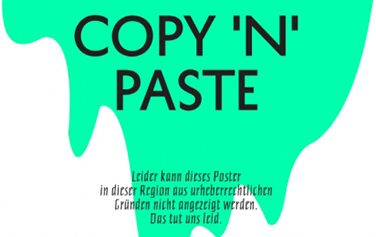
|
»What about the exploitation rights for knowledge contributions of volunteers in research projects?« Sophie-Isabell Idel.
Do students or citizen scientists who participated in a research project have any exploitation rights? The comparison of different examples like the citizen science project STAR@DUST or the COPY’N’PASTE exhibition and contest of the University of Lüneburg give insight into the current situation in practice. (German) more
This contribution arose from the seminar "Research arts - Research at the interface of art, science and technology", which was held at the Leuphana University, Lüneburg in WS/2013-14.)
|
|
|
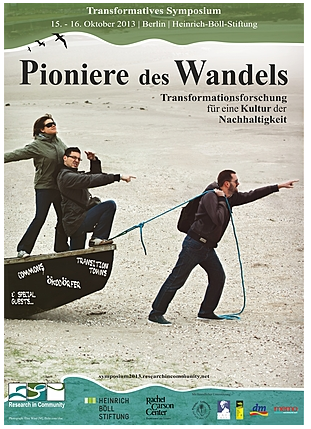
|
»Transition Formats - How do we share visionens, knowledge and experience?« Stella Veciana.
Slowly but steadily more and more academics and community activists are self-organizing in Transition Research groups. While engaging in this transformative processes, not only the research contents get questioned, but also the formats of exchange. New »transition formats« are needed and actualy developed in manifold ways at face to face events as well as at online plattforms. (German) more
|
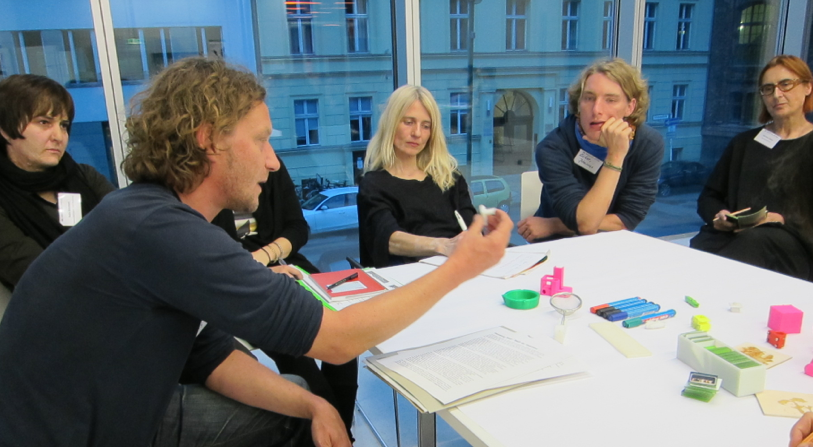
|
|
|
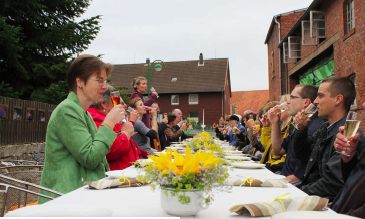
|
»Bringing storytelling into life«. Pia Lanzinger’s Aesthetics of Commoning.
Stella Veciana in conversation with Pia Lanzinger.
Since the nineties, public participation processes and storytelling are the artistic work strategy of Pia Lanzinger. With her expanded art formats and her creative transfer of diverse methods from the social sciences and humanities into the public sphere, she has applied different levels of participation in a variety of urban and rural contexts. These approaches represent an emergent artistic practice of commoning.
(German) more |
|
|
|
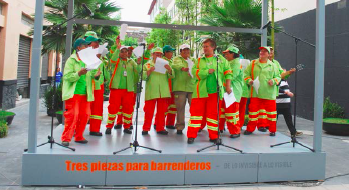
|
»Three Pieces for Street Sweepers. From the Invisible to the Visible«.
Pia Lanzinger.
In the historic center of Mexico City, three stages were set up on which three performances with barrenderos (street sweepers) took place. The street wheepers, whose usual job is removing the garbage thatt collects in the area, receive as little attention in public space as the problem of refuse itself, which already poses insurmountable obstacles for the city. The performances suspend this tendency to invisibility for a few moments during which the street wheepers, who largely conceptualized their own pieces, present themselves as individuals, with their own perspectives and cultural aspirations. more |
|
|
|